On 21 September 2017, the NUS Business Analytics Centre (BAC) concluded its first series of Weekly Industrial Analytics Seminars, where industry leaders are invited to share their roles, responsibilities and daily challenges.
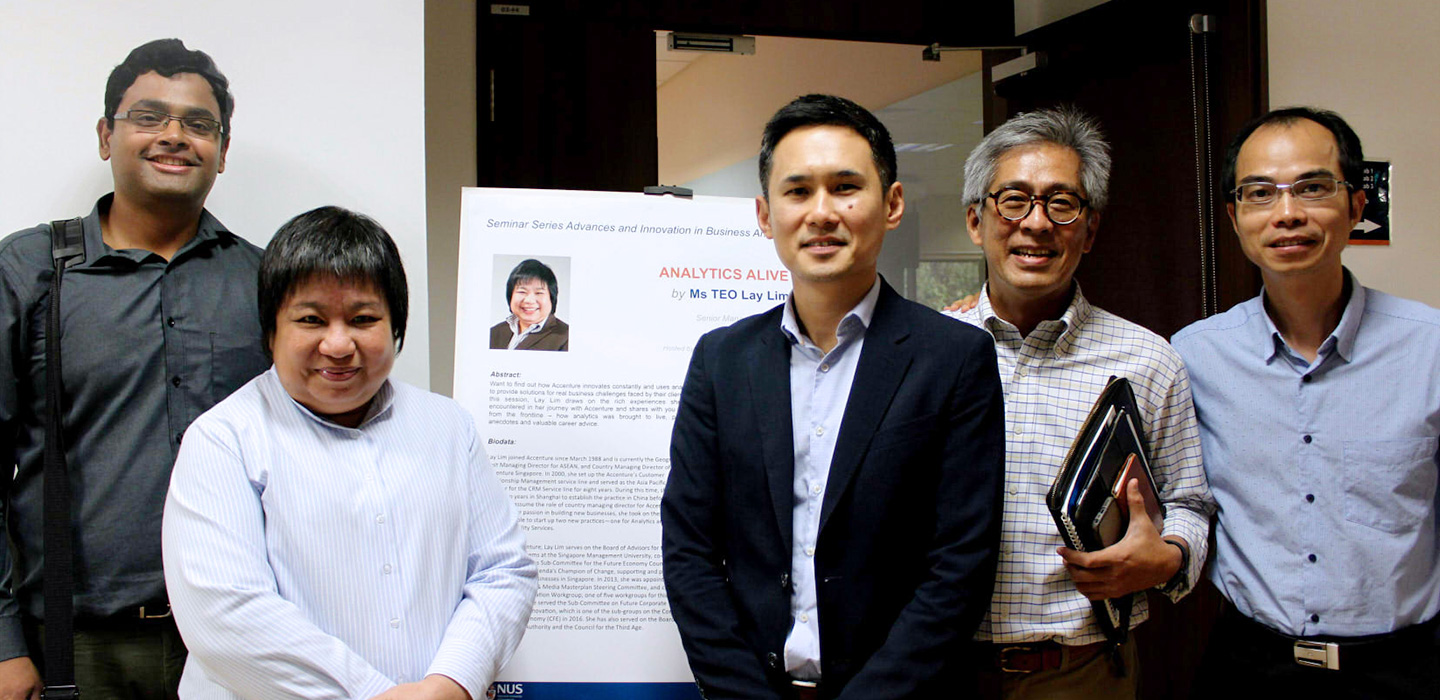
Sharing industry expertise at the Weekly Industrial Analytics Seminars
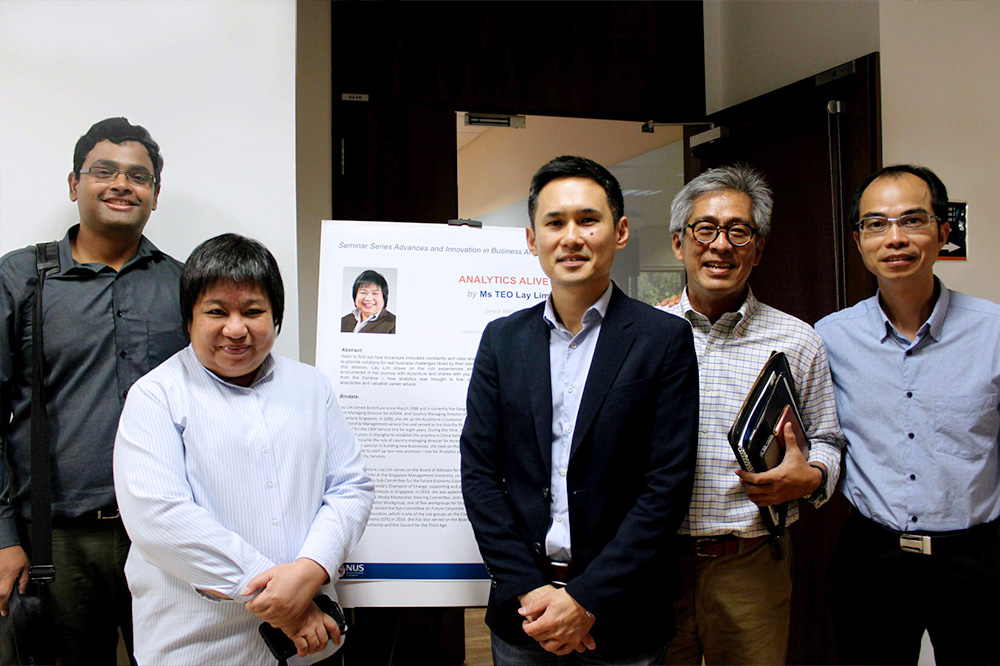
ACCENTURE – 24 August 2017
Kickstarting the series were Ms Teo Lay Lim, Senior Managing Director, Accenture together with her colleagues, Mr Lee Joon Seong, managing director of ASEAN Accenture Analytics Lead, Accenture Digital and Mr Kamal Mannar, Singapore Data Science Centre of Excellence (COE) Lead.
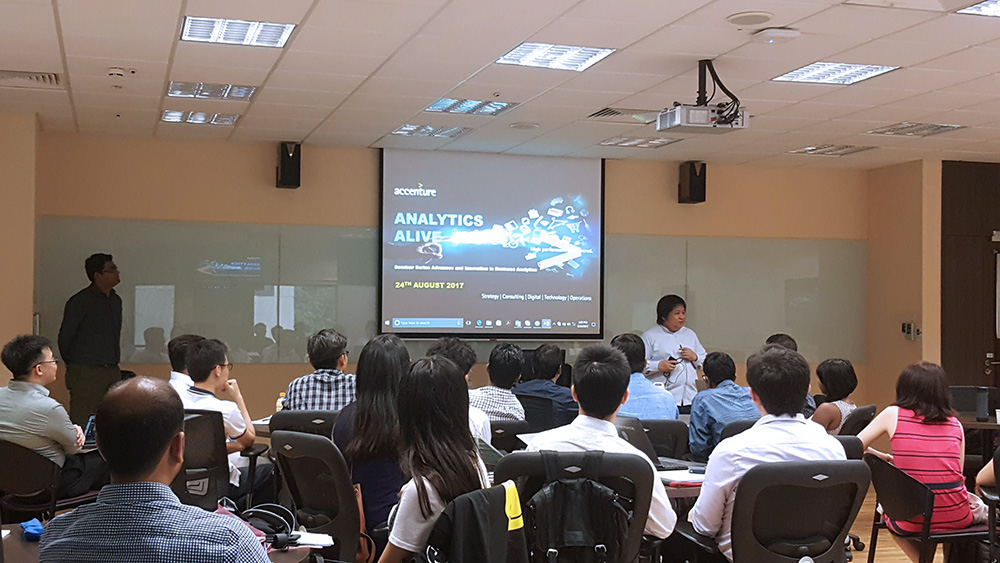
Besides discussing crucial emerging trends in data analytics such as dark data, the rise of artificial intelligence (AI) and data democratisation, the speakers encouraged students to develop their technical expertise, collecting and organising information efficiently, and to learn soft skills such as communication so that they can visualise and present data effectively to relevant parties.
“It is insufficient to be purely adept at being a data scientist. Rather, there is a growing need for ‘analytics artists’,” said Mr Lee.
Ms Teo added: “It’s not about how good you are at crunching data, but rather, how you gather insights from it and expressing it in a way that others can understand.”
SAS Institute – 31 August 2017
Ms Chiang Yoke Fun, Head of Consulting Services at SAS Institute Pte Ltd, Singapore shared with students that demand is growing for technical skills in analysing big data with many sectors such as governmental organisations and financial institutes now requiring basic coding knowledge and business analytics capabilities for important business functions like fraud detection and risk management.
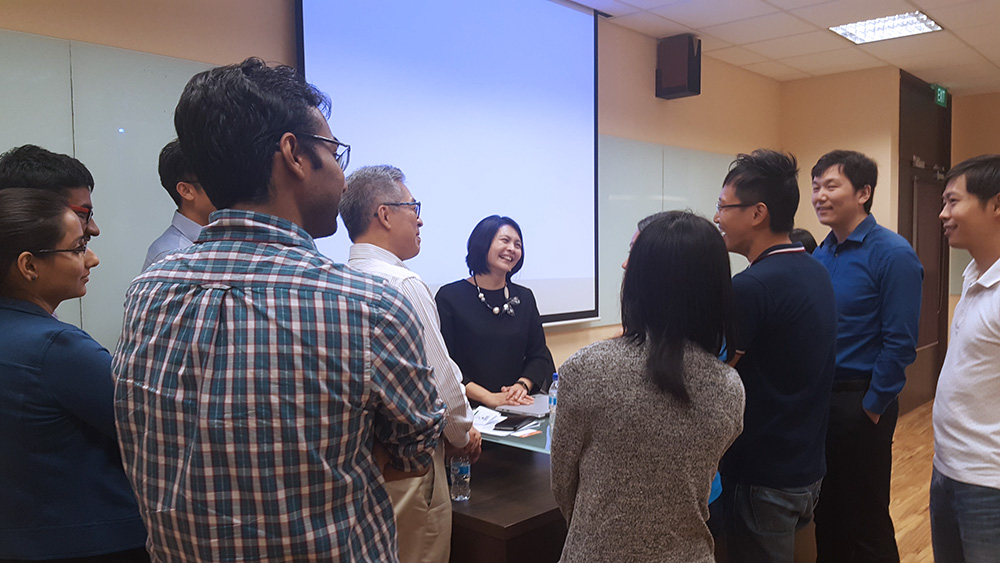
Despite facing difficulties accessing quality, consistent and real-time data, she encouraged students to overcome these limitations by understanding clients’ needs and helping them enhance their existing data collection practices.
In the face of other external challenges such as environmental constraints, end-to-end visibility and depth of domain knowledge, Ms Chiang added: “When you have no control over something, the best way is to be flexible and adapt quickly.”
Y3 Technologies – 7 September 2017
Mr. Jason Tai, Head of Analytics at Y3 Technologies, shared that large organisations are likely to engage start-ups to handle their huge amount of data as it is more efficient. He also noted that new technologies and tools would further change the way organisations harness data to improve their businesses. Quoting McKinsey Global Institute, he said: “Half of all the activities people are paid to do in the world’s workforce could potentially be automated by adapting currently demonstrated technologies.”
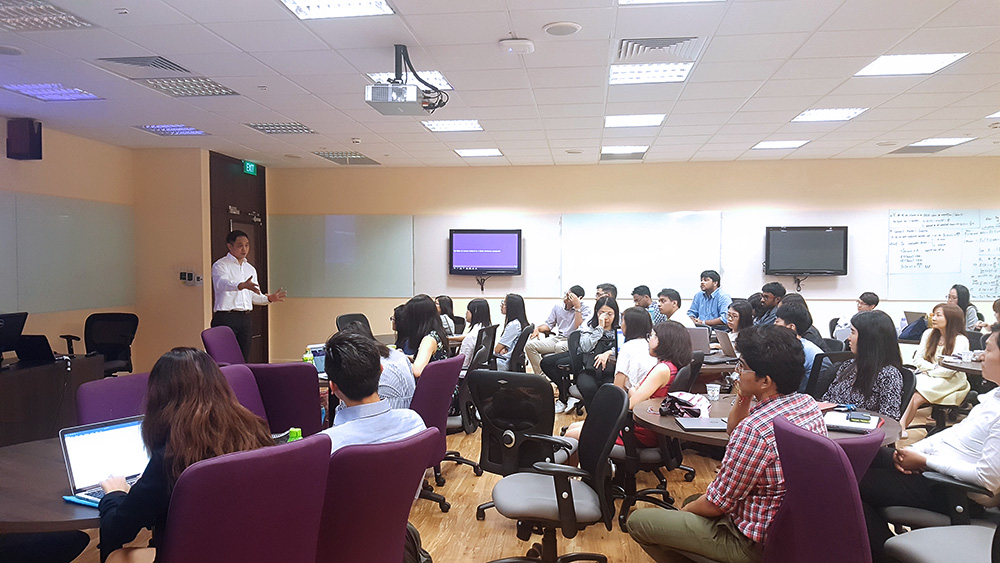
While it is important to get one’s job done, Mr Tai also said that it was important for individuals to know their role in the team and understand what others are looking for. “Walk at least a mile with the user, address how the client’s pain point can be alleviated with analytics so that he can be on your side,” he said
When asked about the One Belt, One Road initiative, Mr Tai replied that one should always keep an open mind to joint ventures as new exchanges breed new ideas. “Rather than worry about duplicates, think about how fast you can innovate and run.”
Institute of Operations Research and Analytics, NUS – 13 September 2017
Sharing Mr Tai’s interest in supply chains is Mr Herman Tan, a visiting research fellow at the Institute of Operations Research and Analytics at the National University of Singapore (NUS) with more than 30 years of experience in the retail business.
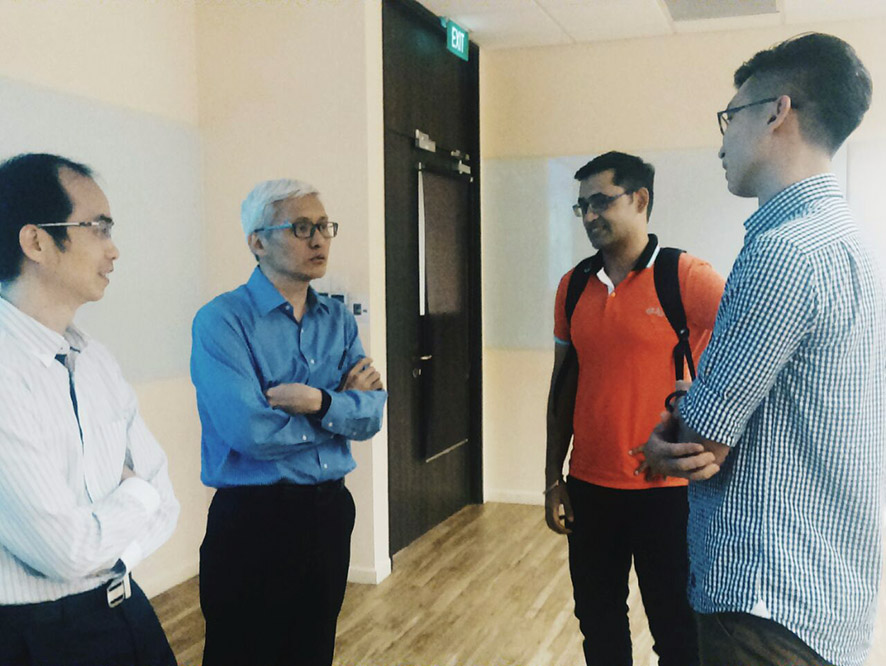
An expert in customer relationship management, loyalty and analytics, he focused on stock-outs, the huge impact they can have on profits, and how supply chain analytics can offer possible solutions to the problem.
Mr Tan explained that while most companies look at sales to determine performance of a product, its sales potential is often neglected because of stock-out situations. In addition, constantly having products that are out-of-stock also decreases customer satisfaction.
A better predictive model to do effective forecasting may seem a viable option but it is an uphill task, Mr Tan said. He added that this would be an interesting area for MSBA students to consider exploring.
Responding to a question by a student on what an “ideal” enterprise resource planning (ERP) system should have, Mr Tan suggested including reports on sales, stock-out, as well as predictive forecast data based on sales potential instead of sales.
VISENZE – 21 September 2017
With retailers wanting to achieve higher conversions online and also cater to the rise of a generation who favour image searches, Dr Li Guang Da, CTO and Co-founder of Visenze helps online retailers implement visual search on their websites. For example, users of sites such as Rakuten, Zalora and Uniqlo will be able to find the product that they want, as long as they have a photo of what they are looking for.
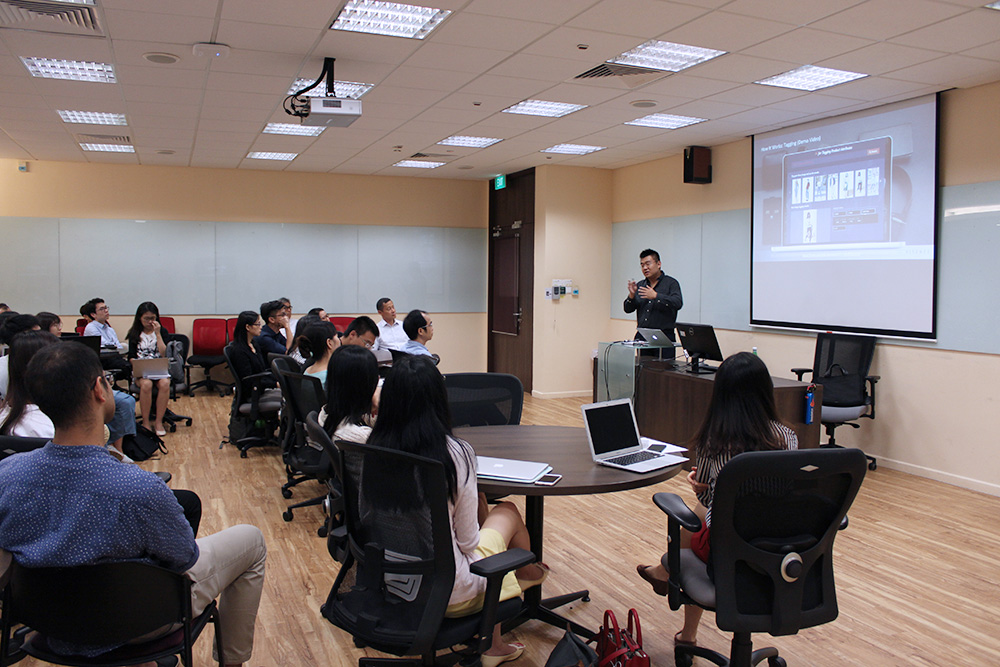
Applying artificial intelligence and deep learning to visual search, shoppers can identify what they are looking for with a picture and avoid scrolling through product listings. This will in return offer shoppers a better shopping experience.
AFTER-THOUGHTS
Prakriti Garg, a full-time student of AY2017/18, who has a strong interest in consumer analytics and e-commerce, said of the seminars: “Through the case studies they’ve shared, I can see how analytics can be applied to businesses and that prompts me to think about the transferability of analytics as well as best practices to the areas of my interests.”
Vincent Huang, another full-time student of AY2017/2018 who used to work in the industry, enjoyed the insights and networking opportunities with industry players, which he said would help him keep abreast of the latest trends and challenges in different industries, know about available career opportunities and stay relevant throughout the course of his studies.
The Industrial Analytics Seminar is a series of seminars that exposes Master of Science in Business Analytics students to industry practices to help them develop a more acute understanding of the industry and the applications of data analytics.
In the coming weeks, other leaders who integrate analytics as part of their business including State Street Global Exchange and StarHub will be sharing their experiences and challenges.
For more information about the Master of Science, Business Analytics programme, please visit msba.nus.edu.sg.


